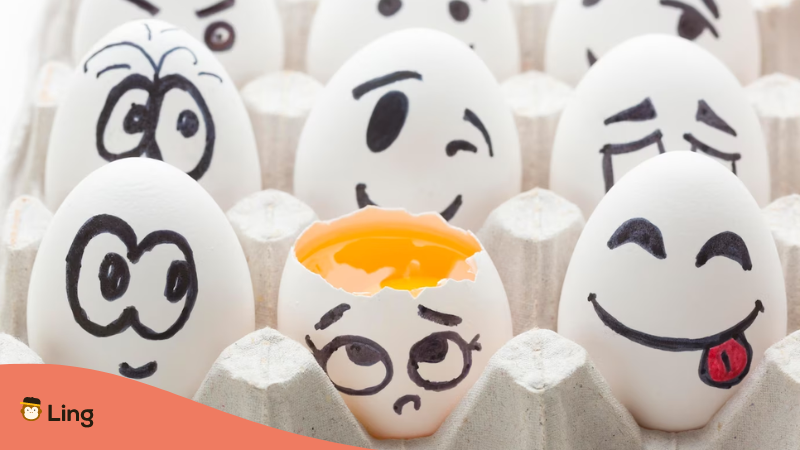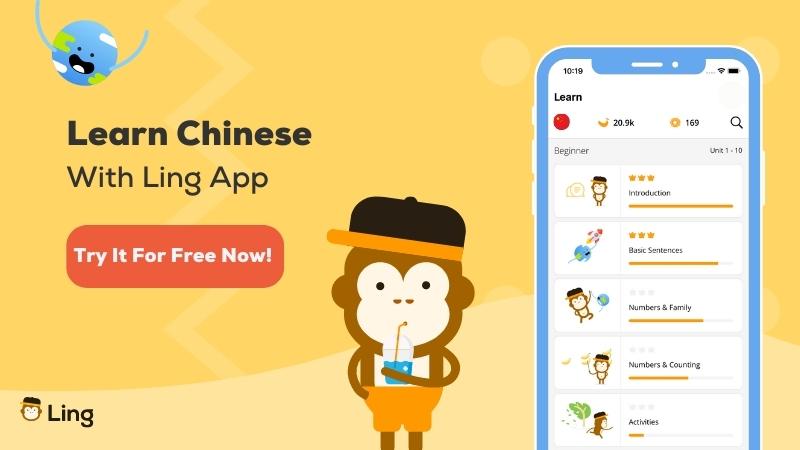The Chinese language is known for its rich cultural heritage and unique characteristics, including using idiomatic expressions and puns. Some of these expressions can be pretty amusing, especially when their meanings are not immediately apparent. In fact, some funny Chinese phrases have unexpected, and often hilarious, double meanings that can lead to confusion or even embarrassment.
In this listicle, we have compiled a collection of 10+ funny Chinese phrases with unexpected meanings, guaranteed to leave you scratching your head and chuckling at the same time.
So, without further ado, let’s dive into the world of Chinese language shenanigans and explore the wit and humor of these amusing phrases.
Importance Of Humor In Language Learning
Learning a new language can be a serious business. But who says you can’t have a good laugh while at it?
Laughter is not only the best medicine but also an excellent tool for memorization and retention. Studies have shown that humor can improve retention and increase motivation to learn. By associating words and phrases with funny or memorable situations, we’re more likely to remember them long-term.
And what better way to inject humor into language learning than by exploring funny Chinese words and phrases?
Chinese culture is full of funny words and phrases native Mandarin speakers love to use in everyday conversation. But beyond their linguistic value, many Chinese terms are downright hilarious, providing a window into the playful and irreverent side of the language.
If you’re looking to expand your Chinese vocabulary with some funny phrases in Chinese, you’ve reached the right section! Let’s deeply dive into the world of funny Chinese phrases and discover how humor can be a powerful tool in our language-learning arsenal.
Funny Chinese Phrases Related To Animals
If you thought animal-related idioms in English were funny, wait until you hear the Chinese equivalents. The Chinese culture has a rich history of using animals to convey certain meanings and emotions. Whether you’re a language lover, an animal enthusiast, or someone who loves a good pun, you’re in for a treat as we explore some funny Chinese animal-related phrases.
吹牛 (Chuī Niú)
Let’s start with “吹牛” (chuī niú). This phrase literally translates to “blowing cows,” meaning to boast or exaggerate about oneself. The origin of this phrase comes from the idea that in ancient China, cows were a symbol of wealth and status. So when someone boasted about their accomplishments, they were said to be “blowing cows.”
If you want to use this phrase in a conversation, you could say something like:
- He always brags about how great he is.
- 他总是吹牛,说自己有多厉害
- Tā zǒng shì chuī niú, shuō zì jǐ yǒu duō lì hài

拍马屁 (Pāi Mǎ Pì)
Next up, we have “拍马屁” (pāi mǎ pì). The literal translation of this phrase is “patting the horse’s butt.” This phrase describes someone who is being overly flattering or trying to gain favor by complimenting someone else.
It originates from the idea that when someone rides a horse, they must pat its butt to make it go faster. So when you flatter someone, you’re patting their “butt” to make them “go faster” regarding their favor towards you.
To use this phrase in a conversation, you could say something like:
- His boss likes to be flattered.
- 他老板很喜欢被人家拍马屁。
- Tā lǎo bǎn hěn xǐ huān bèi rén jiā pāi mǎ pì
露马脚 (Lòu Mǎ Jiǎo)
Moving on, we have “露马脚” (lòu mǎ jiǎo), which translates to “exposing the horse’s hoof.” This funny Chinese phrase means to reveal one’s true identity or intentions. This phrase originated from ancient China, when spies would often wear horse hooves to disguise themselves. So when their hooves were exposed, they were revealed as spies.
To use this phrase in a conversation, you could say something like:
- We need to be careful and not reveal our secrets.
- 我们得小心,不要露马脚。
- Wǒ men dé xiǎo xīn, bù yào lòu mǎ jiǎo
摸鱼 (Mō Yú)
Next, we have 摸鱼 (mō yú), which means to slack off or to waste time. The literal translation of this funny Chinese phrase is “touching fish.” The origin of this phrase comes from the idea that when someone is fishing, they’re not really doing anything productive. So when someone is “touching fish,” they’re not doing anything productive either.
To use this phrase in a conversation, you could say something like:
- I didn’t have much to do today, so I just slacked off at home.
- 今天没什么事,我就在家摸鱼了
- Jīn tiān méi shén me shì, wǒ jiù zài jiā mō yú le
沉鱼落雁 (Chén Yú Luò Yàn)
Next, we have 沉鱼落雁 (chén yú, luò yàn), which literally translates to “sinking fish and falling geese.” This phrase is often used to describe incredibly beautiful women with a magnetic presence that attracts attention wherever they go. Talk about drop-dead gorgeous!
Example sentence:
- My Chinese friends always describe their girlfriends as drop-dead gorgeous.
- 我的中国朋友总是说她的女朋友沉鱼落雁.
- Wǒ de zhōngguó péngyǒu zǒng shì shuō tā de nǚ péngyǒu chén yú luò yàn

Funny Chinese Phrases Related To Food
Get ready to dig into the deliciously hilarious list of funny Chinese food-related phrases! From ‘stir-fry squid’ to ‘drop soup chicken,’ the Chinese language is chock-full of phrases that are as zesty as they are zany.
Whether you’re a foodie, a language lover, or just someone who enjoys a good belly laugh, you’re in for a treat as we explore the strange and surprising meanings behind some of the funny Chinese phrases related to food.
炒鱿鱼 (Chǎo Yóu Yú)
First, we have 炒鱿鱼 (chǎo yóu yú), which means “stir-fry squid.” But don’t be fooled by the seemingly innocent translation – this phrase actually means “to be fired” or “to be dismissed from a job.” The origin of this phrase is unclear, but some say it comes from the fact that squid is easily overcooked and becomes tough and chewy, just like an employee who is not performing well and gets fired.
To use this phrase in a conversation, you could say something like:
- Yesterday, Xiao Ming was fired by his boss.
- 小明昨天被老板炒鱿鱼了
- Xiǎo míng zuó tiān bèi lǎo bǎn chǎo yóu yú le
落汤鸡 (Luò Tāng Jī)
Next up is 落汤鸡 (luò tāng jī), which means drop soup chicken or drenched chicken. This phrase describes someone completely drenched and looking like a wet chicken.
In the past, Chinese people did not have umbrellas and were forced to endure under the hot sun without any protection from its rays. The worse scenario was getting fully soaked on rainy days—Chinese people found that those who looked like a drenched chicken after such an ordeal would be likened to 落汤鸡 (luò tāng jī).
To use this phrase in a conversation, you could say something like:
- It’s raining today, and I’ve become a drenched chicken.
- 今天下雨了,我成了落汤鸡
- Jīn tiān xià yǔ le, wǒ chéng le luò tāng jī
傻蛋 (Shǎ Dàn)
The next phrase is “傻蛋” (shǎ dàn), which translates to “stupid egg.” This phrase describes someone who is foolish or naive, maybe like Humpty Dumpty. The origin of this phrase is unclear, but it has become a popular way to gently tease someone who has done something silly.
- Why did you try to fix the sink with duct tape? You’re such a stupid egg!
- 你为什么要用胶带修理水槽? 你真是个傻蛋!
- Nǐ wèishéme yào yòng jiāodài xiūlǐ shuǐcáo? Nǐ zhēnshi gè shǎ dàn!

吃醋 (Chī Cù)
Next up is 吃醋 (Chī cù), which translates to “eat vinegar.” But this word may have a negative meaning since it describes jealousy or envy, especially in a romantic context. The phrase’s origin is unclear, but some speculate that it could be related to the sour taste of vinegar and the idea of a sour relationship.
Example:
- He gets jealous every time he sees me chatting with his ex-girlfriend.
- 他一看到我和他的前女友聊天就开始吃醋了。
- Tā yī kàn dào wǒ hé tā de qián nǚyǒu liáotiān jiù kāishǐ chī cù le
装蒜 (Zhuāng Suàn)
Another funny Chinese phrase is 装蒜 (Zhuāng suàn), which literally means “to pretend to be garlic.” This phrase is used to describe someone who is pretending to be dumb or ignorant.
Example sentence:
- He’s actually very smart. He’s just pretending to be dumb.
- 他其实很聪明. 只是在装蒜而已
- Tā qí shí hěn cōng míng. Zhǐ shì zài zhuāng suàn ér yǐ
长舌妇 (Cháng Shé Fù)
Moving on, we have “长舌妇” (cháng shé fù), which translates to “long-tongued woman.” This phrase is used to describe someone who gossips or talks too much. This phrase originates from an old Chinese folktale about a woman with such a long tongue that she could wrap it around her neck multiple times. This phrase has since evolved to describe anyone who is overly talkative.
To use this phrase in a conversation, you could say something like:
- I heard that Jane has been spreading rumors about us again. She’s such a long-tongued woman!
- 我听说简又在传闲话了。她真是个长舌妇!
- Wǒ tīng shuō jiǎn yòu zài chuán xián huà le. tā zhēn shì gè cháng shé fù!
Tickle Your Funny Bone
The Chinese language is full of surprises, and the funny phrases we’ve explored today are no exception. Who knew that animals and food could be so hilarious? From “a horse butt” to “eat vinegar,” these phrases remind us that language is not just about communication but also about playfulness and creativity.
Moreover, learning funny Chinese phrases is a great way to impress your Chinese friends and a fun way to explore the nuances of Chinese culture. These words might not have the same meaning to you as they do to the Chinese people, but they’re still a good way to learn about the culture and get a glimpse into what makes their humor so unique.
Learn Chinese With Ling
Looking to learn a new language but struggling to find the time or motivation? Look no further than Ling app! Our revolutionary language learning app is designed to make learning a new language fun, easy, and accessible for everyone, no matter your schedule or skill level.
Language learning should be an enjoyable experience, not a tedious chore. That’s why this app offers a personalized learning platform that adapts to your unique learning style, helping you achieve your language goals faster and with less frustration. Whether you’re a beginner or an advanced learner, Ling has something for everyone, with a wide selection of languages to choose from.
So, what are you waiting for? Download the app on App Store or Play Store now!























